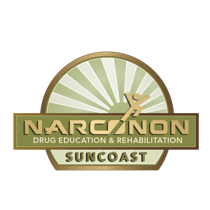Can You Force Someone into Rehab?

As someone who has worked in drug rehabilitation and handled families of addicts for a long time, I’ve come across every question and concern that can possibly be brought up in regards to getting someone into treatment. When families call to get their loved one help, some concerns I commonly hear are:
“He doesn’t want help. He hasn’t even admitted he’s using.”
“She’s using heroin but refuses to go to rehab. I can’t force her to get clean.”
So, what’s a family to do in the situation where either their loved one won’t admit to using drugs (even though it’s glaringly obvious) or it’s known they use drugs, but refuse all attempts to get help? These are tough situations, but there are effective ways to deal with it.
It’s not uncommon that a family has an addict in the household who won’t admit or get honest about what’s going on. When the person became an addict, believe it or not, it happened for a reason. Remember, drugs are a solution to a problem for addicts. Once they try drugs for the first time and feel their effects, they realize the drugs do something for them that nothing else could do, and that is to solve some major life problem. Low self-esteem, low self-worth, self-consciousness, lack of energy and focus, anxiety, depression, and insomnia are just some of the problems drugs handled that nothing else could. So, after continuing to use for a long period of time and after a series of bad decisions, the person finds themselves completely addicted to drugs. Then the shame, remorse and regret set in and the addict denies what’s going on at all costs, even though all the red flags and warning signs point to a person with a serious issue.
I tell families all the time, the best way to get their loved one to start getting honest about what’s going on is to drug test them. Drug tests can be bought at any local pharmacy and you can tell by their reaction to the test, if anything sketchy is going on. If they flat out refuse to take a drug test, that’s a huge indication they’re using drugs and have something to hide. A person who doesn’t use drugs would have no problem or issue with taking a urine test.
If the suspected addict yells, screams, jumps up and down or just unexpectedly leaves the house, there’s something going on and they’re afraid everyone will find out. Drug test them. If they refuse, they’re using. Once the family finds out what’s going on, then attempts can be made to get them help.
A more difficult situation is when a family has an addict who admits to using drugs but flat-out refuses to go to rehab. What do you do then? A question I get fairly regularly is:
“Can I force them to get help?”
The answer is no. You cannot force an addict to get help because, honestly, what’s the point? Let’s say it was completely legal to “black bag” an addict and force them into treatment completely against their will. If they have absolutely no desire to get clean and don’t think they have a problem, there is no rehab center on this planet that’s going to work. For a person to get help, they must have at least a faint desire to be clean and lead a sober life. A lot of people think an intervention is a way to force someone into treatment and that couldn’t be further from the truth.

Some types of interventions may force the addicts hand because if they don’t go to treatment, the family is going to cut them off, kick them out or give them some other consequence for their choice. While this works for some, most addicts who go to rehab under this kind of duress won’t do especially well. What ends up happening is they’re forced to get help because they don’t have any other options. They end up faking their way through the program, only to come out and make everyone wrong by relapsing. A true intervention doesn’t use this type of force. A true intervention consists of two counselors meeting the family at their home and conducting the intervention. While one counselor handles questions and concerns of the family, the other works one-on-one with the addict and helps them come to the realization they actually do need and want help. No stress, no force, just handling the addict’s objections and guiding them towards a sort of epiphany that they need to change. Once that has been accomplished, the addict is packed up and brought to a treatment center.
Some of the greatest success stories I’ve ever seen have come from this type of intervention.
No black bag needed.
When a family is up against a wall with an addict who’s in denial about using or just refuses to get help, they have to remember, there are options. They don’t have to rationalize the problem or give up hope. By using the available tools, such as drug testing and interventions, their loved can be helped and put onto a better path in life. The best thing is to not panic, go pick up a drug test and get in touch with a treatment center that will assist with a proper intervention. That way, the family can rest easily as the addict handles their issues and puts their drug use in the past for good.


